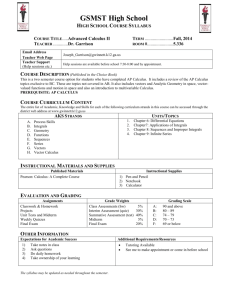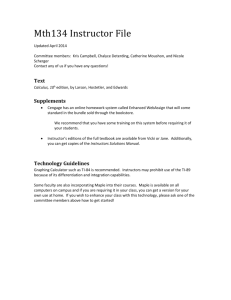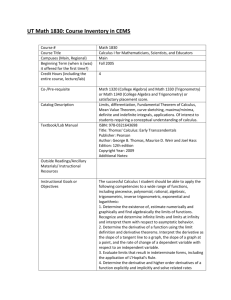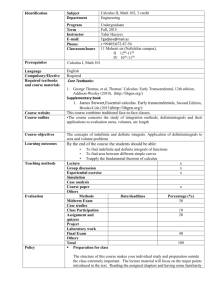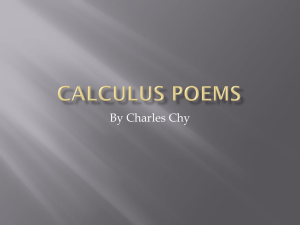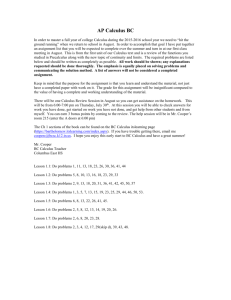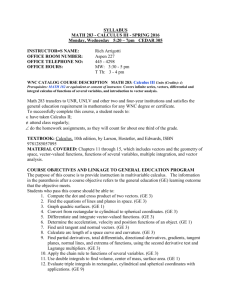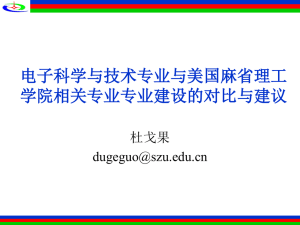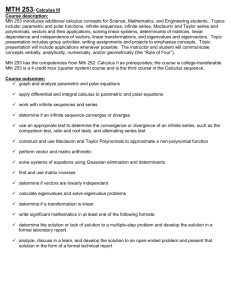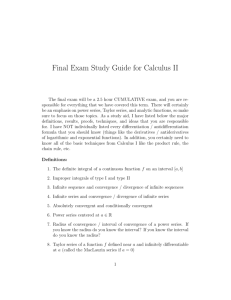Calculus II - Math 161 - William Paterson University
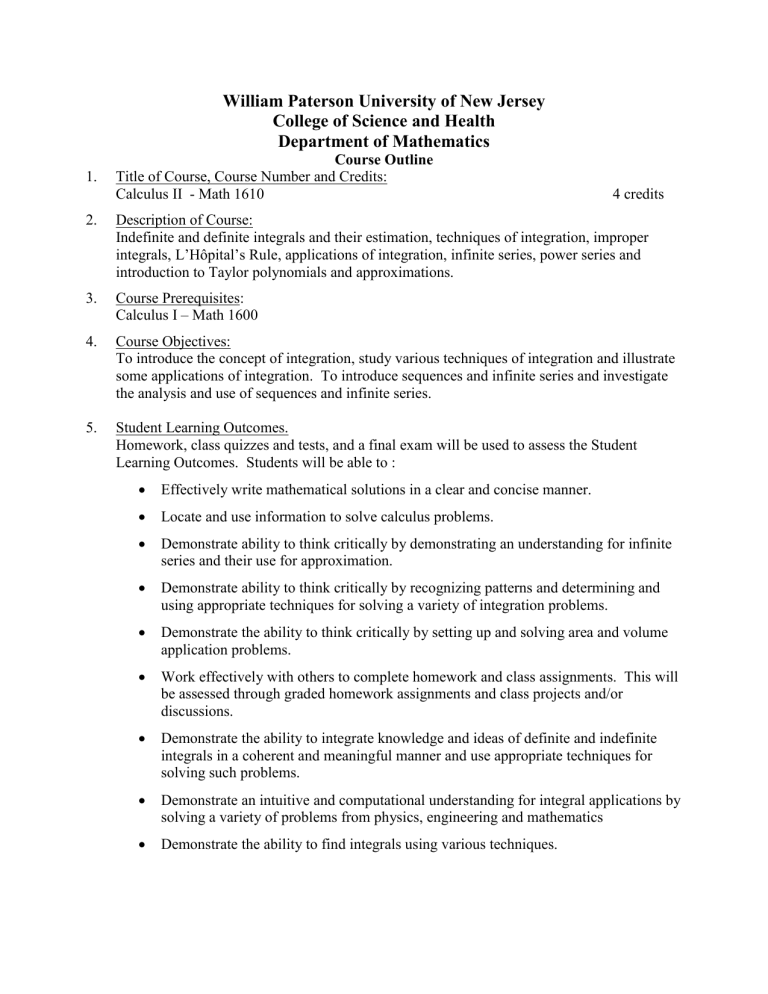
William Paterson University of New Jersey
College of Science and Health
Department of Mathematics
Course Outline
1. Title of Course, Course Number and Credits:
Calculus II - Math 1610
2. Description of Course:
4 credits
Indefinite and definite integrals and their estimation, techniques of integration, improper integrals, L’Hôpital’s Rule, applications of integration, infinite series, power series and introduction to Taylor polynomials and approximations.
3. Course Prerequisites:
Calculus I – Math 1600
4. Course Objectives:
To introduce the concept of integration, study various techniques of integration and illustrate some applications of integration. To introduce sequences and infinite series and investigate the analysis and use of sequences and infinite series.
5. Student Learning Outcomes.
Homework, class quizzes and tests, and a final exam will be used to assess the Student
Learning Outcomes. Students will be able to :
Effectively write mathematical solutions in a clear and concise manner.
Locate and use information to solve calculus problems.
Demonstrate ability to think critically by demonstrating an understanding for infinite series and their use for approximation.
Demonstrate ability to think critically by recognizing patterns and determining and using appropriate techniques for solving a variety of integration problems.
Demonstrate the ability to think critically by setting up and solving area and volume application problems.
Work effectively with others to complete homework and class assignments. This will be assessed through graded homework assignments and class projects and/or discussions.
Demonstrate the ability to integrate knowledge and ideas of definite and indefinite integrals in a coherent and meaningful manner and use appropriate techniques for solving such problems.
Demonstrate an intuitive and computational understanding for integral applications by solving a variety of problems from physics, engineering and mathematics
Demonstrate the ability to find integrals using various techniques.
6. Course Content:
Integration
The Fundamental Theorem of Calculus (Review)
Basic Rules of Integration (Review)
Integration by Substitution
Inverse Trigonometric Functions and Integration
Applications of Integration
Area of a Region Between Two Curves
Volume: The Disc Method
Volume: The Shell Method
Techniques of Integration
Integration by Parts
Integration by Trigonometric Substitutions (optional)
Integration using Partial Fractions
Improper Integrals, Indeterminate Forms and L’Hôpital’s Rule
Numerical Integration (Trapezoidal and Simpson’s Rules)
Infinite Series
Sequences
Infinite Series and Convergence
Geometric and Telescoping Series
The Integral Test and p-Series
Comparison Tests for Infinite Series
Alternating Series; Conditional and Absolute Convergence
The Ratio and Root Tests
Power Series and Interval of Convergence
Taylor Polynomials and Approximations
Taylor Series
Representation of Functions by Taylor Series
Calculus II - Math 1610
2.5 weeks
2.5 weeks
4 weeks
4 weeks
Page 2 of 3
Calculus II - Math 1610
7. Guidelines/Suggestions for Teaching Methods and Student Learning Activities:
This course is taught as a lecture course with student participation.
1.
Classroom lectures to illustrate concepts.
2.
Student assignments to enhance concepts.
3.
Math Learning Center available for peer tutoring
8. Guidelines/Suggestions for Methods of Student Assessment (Student Learning Outcomes)
1.
Three in-class examinations are suggested.
2.
Short quizzes and graded homework.
3.
A common cumulative final examination
4.
Attendance Policy - More than 5 absences is an automatic F.
9. Suggested Reading, Texts and Objects of Study:
University Calculus , Hass, Weir & Thomas, Pearson: Addison-Wesley. (Fall 2012).
Calculus: Early Transcendental Functions , Larson & Edwards, Brooks/Cole.
10.
(effective Spring 2013)
Bibliography of Supportive Texts and Other Materials:
1.
Calculus, Early Transcendentals , Edwards and Penney, Prentice Hall.
2.
Calculus , George Thomas, Addison-Wesley Publishing Co.
3.
Calculus: Early Transcendentals, James Stewart, Brooks/Cole.
11. Preparer’s Name and Date:
Fall 1979
12. Original Department Approval Date:
Fall 1979
13. Reviser’s Name and Date:
Professor P. von Dohlen, Fall 2008
Professor D.J. Fengya, Fall 2004
14. Departmental Revision Approval Date:
Fall 2008
Page 3 of 3

